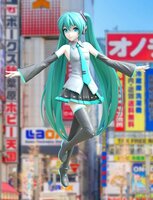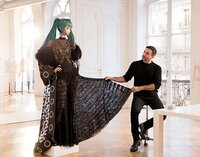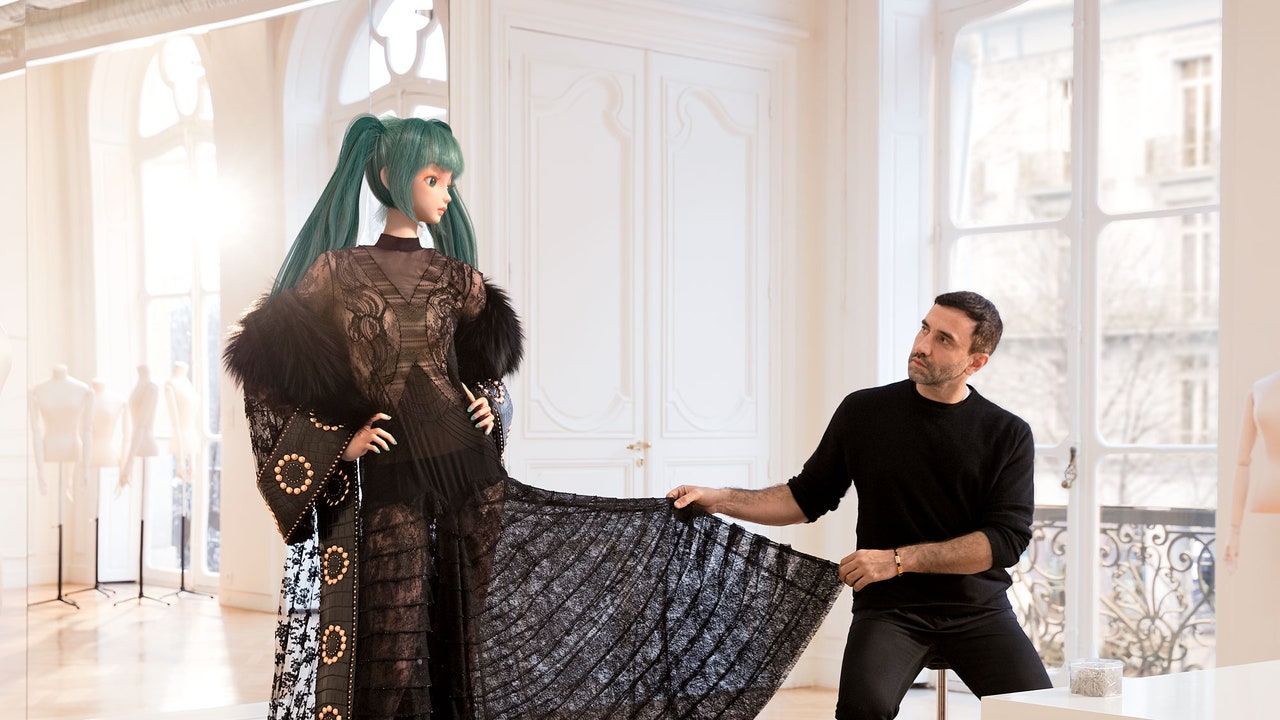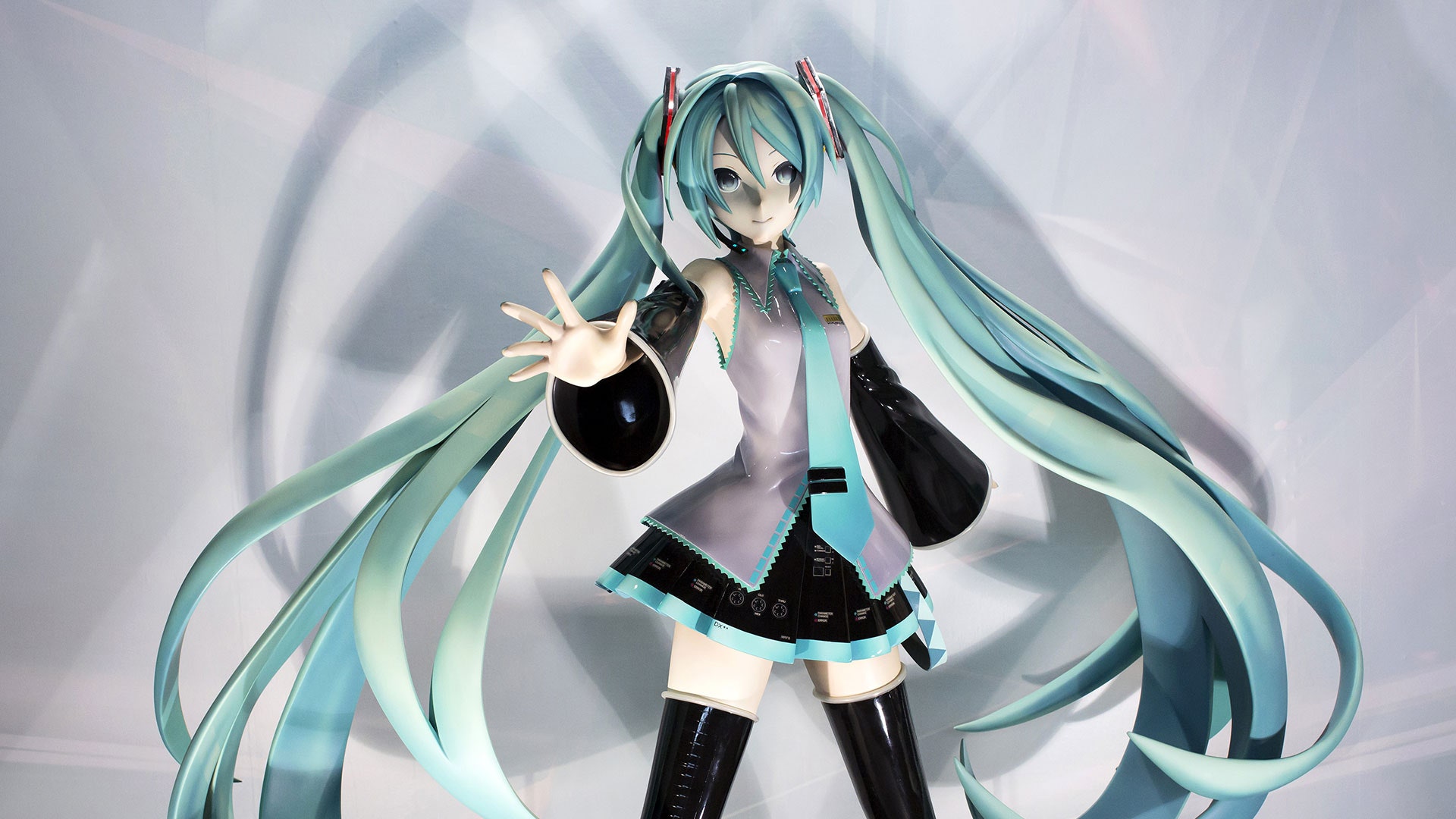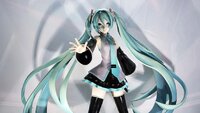
Re: Miku at Coachella
The first fan collective to ever play the festival.

www.gq-magazine.co.uk
[It seriously breaks my heart that this was cancelled!]
[All emphasis added by me]
Hatsune Miku is the most exciting addition to Coachella’s 2020 line-up
Hatsune Miku is the pop star with absolutely no ego: because she's not even a sentient human being. The latest evolution of virtual music is now playing Coachella and the way her music is made makes her the festival's most interesting choice
In the last few years – in an attempt to rectify what was seen as a famously male-heavy line-up – American music festival Coachella has brought in some of the biggest divas around to headline. There was, of course, Beychella, which became the Netflix movie (and live album) Homecoming; then there was Ariana Grande (or "Arichella") the year after and performances by Janelle Monae, Blackpink, Rosalía and King Princess among others. This year no women headline and, in fact, Coachella have brought in the anti-diva to perform: Hatsune Miku, a woman so decidedly un-egotistical that she isn’t even real at all.
|
Above I talked about the benefits of Miku being a virtual pop star, in that she can't become a media scandal and such. This highlights yet another benefit. Superstars with big egos can be hard to work with and disruptive. I've actually read interviews with some of the Miku band members who more or less said they enjoyed working with Miku because she is essentially a perpetually positive "person" to work with.
As an aside, the band get so used to playing with Miku they start to anthropomorphize her (as we humans do). In one instance the power went out during rehearsal. One member said that when Miku went offline it really felt like she had left the building.
[Omitted paragraph covers Vocaloid and Miku's rise to fame through online videos. How she has the Project Diva games and did the Pharrell, Lady Gaga, and Letterman appearances.]
One might think that a hologram performing at a festival is a cheap and labour intensive equivalent to bringing in a living, breathing pop star. Not so, says Devigne: “There’s a whole team who’s there to do the prep, control the visuals and if something goes wrong we have to move really quick. There’s a whole system to be able to be responsive and be able to coordinate the digital aspect with the human aspect.” The human aspect would be the band, who all have to be perfectly on time with their virtual lead singer. As it’s such a specific type of show, Crypton also have to ship the entire crew over from Japan. “It’s a pretty heavy set up, so we pretty much need to know we’re going to gather a lot of people to be able to make it.” |
Miku's concerts require such proprietary equipment and operational knowledge that they have to send the entire hardware setup and crew when they go on tour. Often touring musicians will hire local stage crews and talent at locations on their tour so they don't have to bring a huge expensive entourage with them. Can't do that with Miku.
Perhaps the most interesting thing about Miku, however, is the fact that her set list is effectively the crème de la crème of the music her fans have made. Some of her most popular songs, such as "World Is Mine", were created just months after the software was released. A handful of others were curated and put into Project Diva, making them synonymous with Miku herself. “We have some high profile vocaloid creators we sometimes go to to commission songs,” explained Devigne – especially when a big tour or show is coming up. “We make a set list, inside [Crypton] we have a lot of people whose job it is to find those songs and we would then get them.” There are currently, according to Crypton, over 100,000 Hatsune Miku songs.
Crypton don’t acquire the rights to the songs – they leave those with the creators – but they do get the usage rights and adapt their arrangements for stage, which in turn gives the original creators a huge boost. “Some of the first creators who used Miku were beginners and they made their careers with Miku,” explained Devigne. Japanese band Supercell, for example, started making Miku vocaloid tracks and signed to Sony Music Entertainment Japan in 2009. “I think [Hatsune Miku] is an ambassador between the ‘read-only’ world of the 20th century, in which people were only passive receptors of culture, and a new ‘read-and-write’ world, in which people can become cultural emitters as well,” Crypton CEO Hiroyuki Itoh told The Creators Project.
In a way, it’s sort of the same as – and the inverse of – how songwriting camps are created for major stars such as Rihanna, drafting in big talent to be sequestered away and create a stream of hits. Whereas in that case talent is brought together to manifest a major talent’s singular voice, Hatsune Miku is the collective project of thousands of people’s voices and her music is incredibly varied as a result. “J-Pop concerts sound very different from Hatsune Miku,” explained Devigne. “We don’t have a roster of people who are recurrent on the shows. We pick the best song from 20-30 people, instead of a couple of composers making a whole set list.” |
Once again covering the crowd-sourced nature of her music. As they mentioned, this makes for a very diverse set list covering many genres. I've read of one drummer who commented that touring with Miku really challenged him to develop his skills because in the past he had never had to play so many different genres in the same show.
Devigne said that many of the people you’ll find at a Miku concert are not, normally, concertgoers in the traditional sense and that the concerts differ in format to how you might be familiar with a gig going. “You’ll have participation of the audience that is maybe more organised and a certain set of rules you probably won’t find at a regular concert.” But, he says, there are also huge benefits of a virtual performer, namely the speed of it. “You go from one song to another; she does costume changes in a split second,” he explained. “Miku doesn’t take breaks.”
Coachella is no stranger to the art of the virtual performer: after all, it was there in 2012 that they brought back Tupac, the beginning of an age of morally complex decisions by companies and awards shows to bring back dead stars from Michael Jackson to Amy Winehouse, usually featuring a projection of a body double acting with the original performer’s face and vocals grafted on top. Coachella is also no stranger to "virtual artists": Gorillaz, one of the most iconic bands to not really exist, played there in 2010. But even Gorillaz was made up of a band of musicians, who played on stage while videos were projected in the back. Hatsune Miku is even more non-existent. She is, perhaps, the first time an online collective will be a performer at Coachella. Like Anonymous with better rhythm.
|
Filling time during breaks is sometimes troublesome at regular pop concerts. Miku can do thirty songs in a row without a problem. They talk about the Gorillaz which I have always found to be an interesting band concept. As far as bringing people back from the dead via holograms... I don't know what to think of that. I could see it going too far in the future.
She is, perhaps, more like the music being put out by Riot Games. Their supergroup K/DA performed with augmented reality software back at the League Of Legends World Championship in 2018 to make them look like they were the LoL characters they were performing as. In 2019, another supergroup – featuring Becky G and Hustlers’ Keke Palmer – did another number at the event. “There’s some really cool stuff a virtual artist can do live that a human performer couldn’t,” said Riot Games' creative lead Viranda Tantula. “We literally had Akali disappear in a magical smoke shroud in front of the eyes at our Worlds performance.
“On the other side of it, there’s that organic ability to improvise, sing and dance with raw emotion that a human performer can bring,” Tantula added, “that a virtual performer just can’t, or, at least, won’t be able to for quite some time.” Riot Games are now effectively their own record label, distributing their music in a way that takes video game scores from concert halls into pop music. |
I don't know if I'm alone in this, but I find the League of Legends human+virtual hybrid group to be a little uncanny. I also feel it borders on just being fanservice. Of course, I'm not into the k-pop scene, although I do understand why it appeals to people.
| There are ways in which Crypton want to improve Hatsune Miku – more interactivity, more real-time control, the direction she looks – but there are other ways in which making her any more refined is not really in their interests. “In recent concerts, she’s kind of sobbing within a song and we’re having her express more human feelings, but there’s always a limit,” says Devigne. “The fact that there’s still that artificiality is a plus. It adds a different colour. If it was too perfect, it would be pretty pointless.” |
I've said before, "In the beginning we loved Miku despite her flaws. Now we love Miku because of her flaws."

 www.wmagazine.com
www.wmagazine.com



